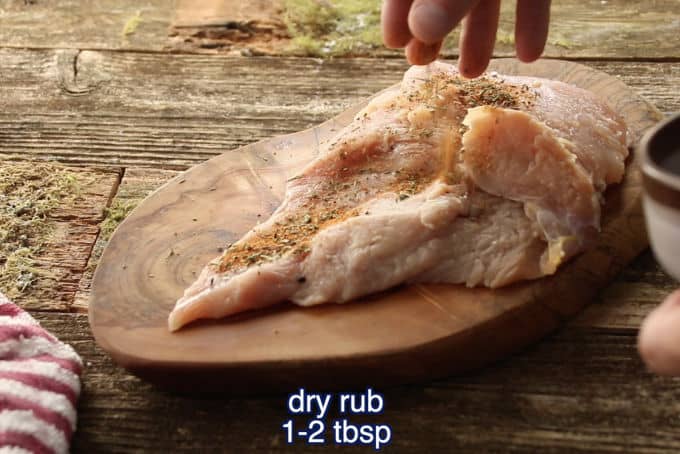As fall approaches and turkey hunting seasons open up, many hunters find themselves with fresh wild turkey breast in the freezer Cooking wild turkey can seem intimidating, but with the right techniques, you can achieve tender, juicy, and flavorful results. One of the most important factors is knowing the proper internal temperature for cooking wild turkey breast.
When it comes to temperature, wild turkey breast has some key differences from domestic turkey that impact cooking. Let’s look at why temperature control matters and how to determine the ideal temp for your preparation method
Why Temperature Matters for Wild Turkey
Wild turkeys are leaner and more muscular than domestic turkeys. They get more exercise flying and foraging in the wild so their breast meat is lower in fat. This leanness makes precise temperature control very important when cooking.
Higher temperaturescause wild turkey breast to dry out quicker. And since wild turkeys don’t have the fat marbling of domestic turkeys, overcooking leads to dry, tough meat.
On the flip side, cooking wild turkey breast to the proper minimum internal temperature is crucial for safety. Like all poultry, it needs to reach 165°F throughout to be fully pasteurized.
So cooking wild turkey is a balancing act. You need to reach a high enough temperature for food safety but avoid going so high that the breast meat dries out. This is where an instant read thermometer becomes indispensable.
Minimum Safe Temperature
Wild turkey needs to reach an internal temperature of 165°F for safe consumption. The breasts should register 165°F on a food thermometer after cooking.
At this temperature and above, any potentially harmful bacteria are instantly destroyed throughout the meat. While 165°F is the recommended safe minimum, slightly higher temperatures up to 170°F give you a safety buffer.
Keep in mind that carryover cooking causes the temperature to rise about 5-10°F after removing meat from the heat. So I recommend pulling wild turkey from the oven or grill when it reaches 155-160°F.
Ideal Temperature for Juiciness
For the juiciest results, I find that cooking wild turkey breast to 155°F then allowing carryover cooking to bring it up to 160-165°F produces the best texture.
At these cooler temperatures, less moisture is forced out of the lean breast meat. The turkey stays incredibly tender and succulent.
It’s safe at these temps thanks to the lengthy cooking times of most methods. For example, roasting or smoking for several hours gives time for pasteurization even at 155°F.
The only downside is the meat retains a slightly pink color even when thoroughly cooked. Go higher if you prefer white breast meat.
Methods and Recommended Temps
The ideal finishing temp varies slightly depending on the cooking method.
Oven Roasting: Cook to 155°F then allow carryover cooking to 160°F for super juicy meat.
Grilling: Quick cooking means aim for 165°F for safety. Brining helps prevent drying out.
Smoking: 155-160°F for tender meat since the smoke helps preserve and add moisture.
Sous Vide: Cook at 145°F for 2-4 hours depending on thickness for foolproof results.
Braising: Cook to 195-200°F for fall-off-the-bone tender shredded turkey.
Takeaways on Wild Turkey Temps
The keys to success are minimizing moisture loss by not overcooking, while still reaching a safe minimum internal temperature of 165°F. For any cooking method, use an instant read thermometer to monitor the temp of the thickest part of the breast. This ensures tender, juicy meat every time.

This simple recipe for oven-roasted wild turkey will leave you strutting
April is a special time of year across the Southeast. There is something for all outdoor enthusiasts to do. If you like fishing, there are opportunities of all kinds, freshwater and saltwater, and hunters can get back into the woods for encounters of the gobble, gobble, gobble kind.
If you consider yourself a sportsman and don’t look forward to April, you might want to reevaluate your opinion of yourself.
One thing I try to provide in April is an excellent recipe for wild turkey and many of them come from my friend, Robert Cardwell, of Rockingham County, N.C. You won’t be disappointed with this one. I can’t say he is the only one who influences my gastronomical experiences with thunder chickens, but he has shown me a lot. For several years running I have featured one of his recipes in April, and there have been others going back more than 10 years. If you tried any, you won’t need to ask why. He knows turkeys and knows how to prepare them.
If you still have a turkey breast in your freezer from last year, go ahead and try this. If you don’t, you’ll need to slip into the woods and send one an invitation to dinner that begins with sweet purrs and encouraging yelps, but is followed by a loud bang pushing a magnum load of No. 5 shot.
The Best Way To Cook Smoked Wild Turkey Breast
FAQ
What temperature is wild turkey breast done at?
Is it better to cook a turkey breast at 325 or 350?
What is the best temp for turkey breast?
What is the body temperature of a wild turkey?
